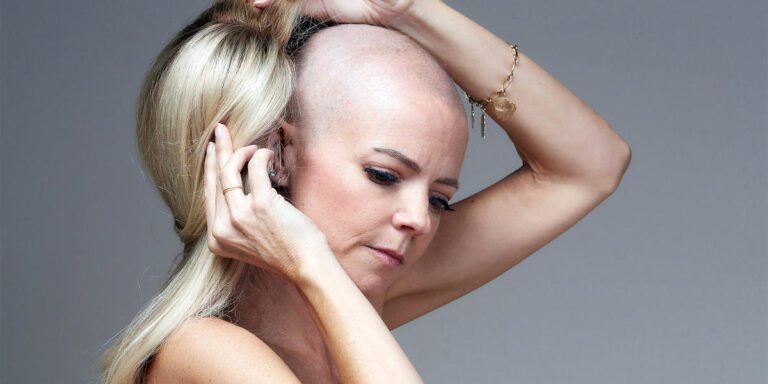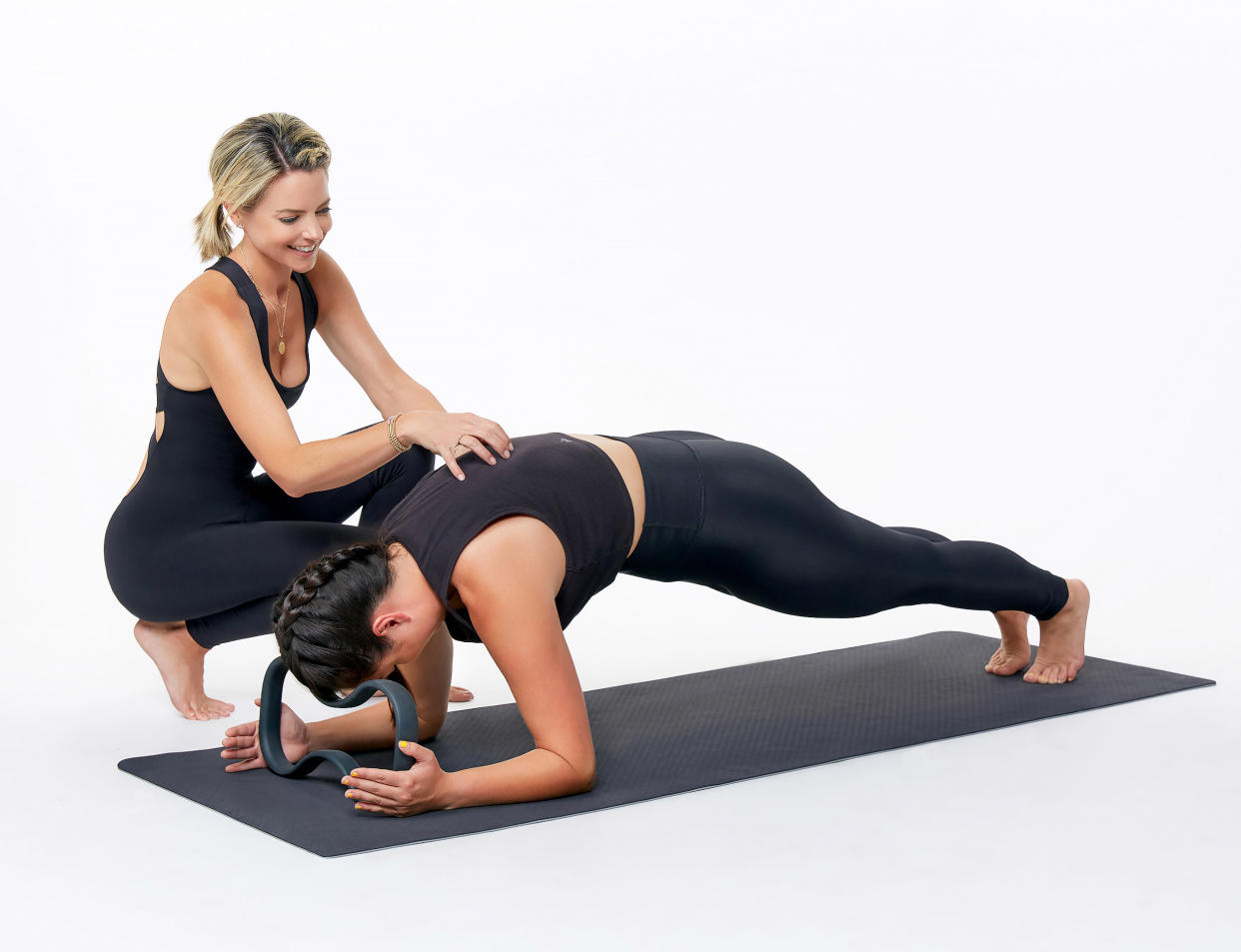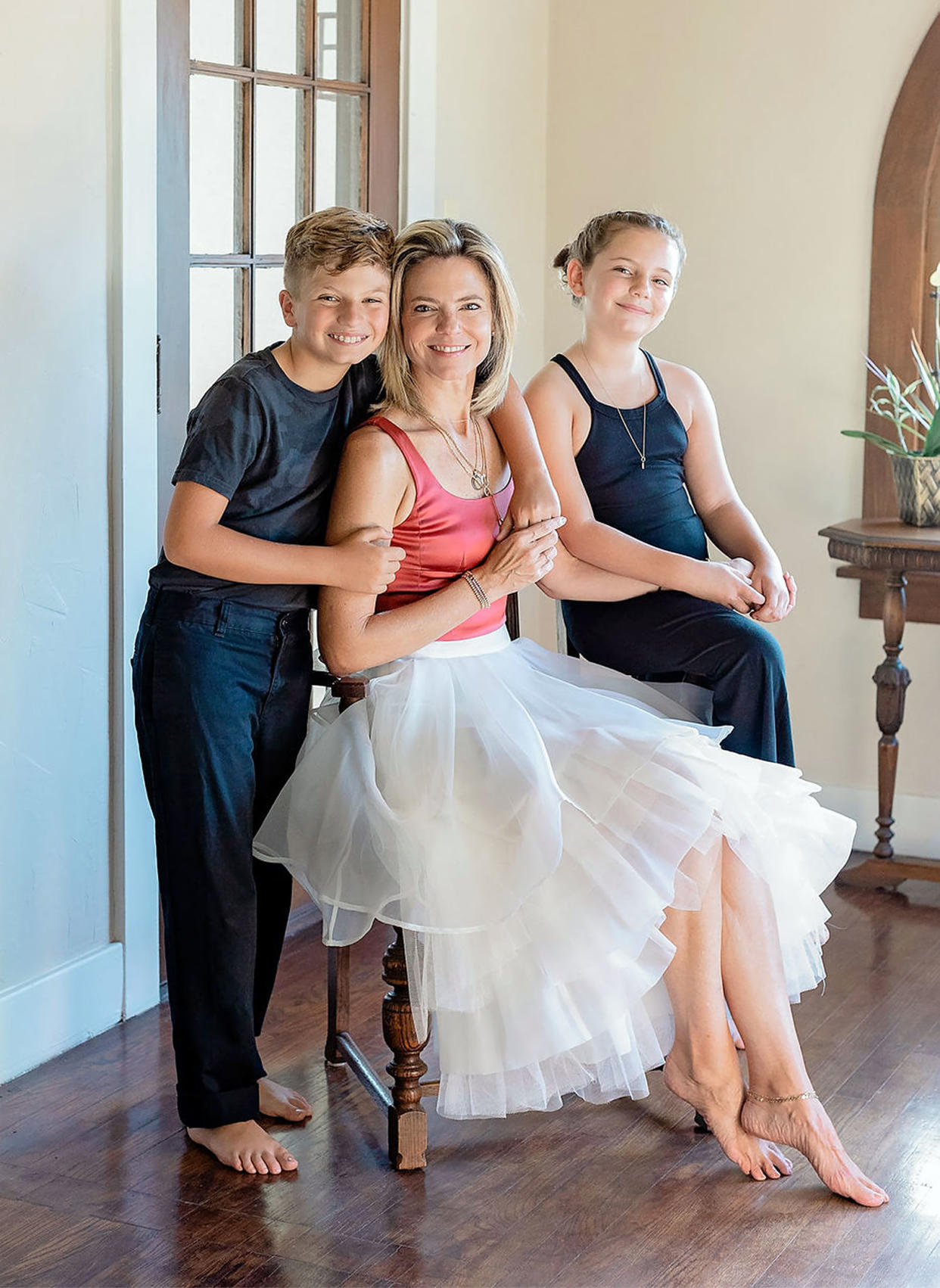
[ad_1]
It was just a few months ago when Amy Jordan realized she no longer needed to rely on modifications during Pilates classes. Since being diagnosed with an aggressive cervical cancer and undergoing grueling treatment a little more than two years ago, Jordan slowly has been building up her strength in the hope that she’ll be able to. move her body as she once did.

“I really feel like I can do the workouts I used to do without breaks, without modification,” Jordan, the 47-year-old founder and CEO of WundaBar, a Pilates studio in New York City and California, tells TODAY.com. “It was sometime in November that I was like, ‘Wait a second, I just took a class and felt pretty much the same way I would have felt pre-cancer.’ And, I was so grateful.’”
In 2020, Jordan was diagnosed with small cell neuroendocrine carcinoma of the cervix, a rare and aggressive type of cervical cancer. According to MD Anderson Cancer Center, about 100 of the 11,000 cervical cancer cases will fall into the small or large types. The diagnosis meant that she needed to undergo an intense treatment plan.
“My oncologist said, ‘This is really rare and aggressive, and we have to throw everything at it,” Jordan told TODAY.com in December 2020. “‘We are aiming for a cure.’”
After five months of treatment, which included 90 hours of chemotherapy, 25 days of radiation and a radical hysterectomy, Jordan celebrated being cancer free with a photo showing her scars and a moving caption about the experience. Sometimes, it feels surreal.
“When I look back at pictures or just reflect on experiences, it seemed like it didn’t even happen in almost a Twilight Zone way,” Jordan says. “I have this new filter, this new lens of how to look at life and what a gift it is to be able to show up and help people.”
During her treatment, Jordan couldn’t teach Pilates like she once did and quickly adapted. She used body models to hold the poses she couldn’t sustain or even do, in some cases. Having a large abdominal scar meant doing a full roll-up — going from a prone position on the floor into a curled up seated position — wasn’t wise.
“That wasn’t doable, and it wouldn’t be a smart choice to do as you’re healing,” she says.
Having cancer and recovering from it taught her how to be a better teacher.
“This experience has given me a really intuitive way to work with people who are going through health concerns, and it’s made me a better movement educator,” Jordan says. “It allows me to really meet people where they’re at and allow for space and modifications and changes that keep them moving without trying to keep up with anyone else and really staying within the framework of your own skin while you’re moving.”
It was during her recovery that she even developed a new tool to help her as a teacher and to help her students, the WundaCore Resistance Ring.
“It’s basically a fitness tool that replaces a trainer’s hand because during COVID, during cancer, I couldn’t have my hands on my clients to adjust their bodies and help them get the most out of their (practice),” she says. “It really gives you the feedback to get the most out of your exercises.”

People have reached out to Jordan about her cancer story, often saying hearing about it helped them.
“They’ll come up to me and say, ‘Oh gosh I’ve watched your journey. I’m so inspired, and it helped me get through XYZ,’” Jordan says. “There’s this ripple effect of how we can share and show up with resiliency so that others can also grow and understand the important of resilience. And that’s my goal with sharing the story — to serve people with positivity, to serve others with a hope and an understanding that as much as it sucks right now, just keep moving. Just keep breathing.”
Jordan feels it’s important to be candid about her experience with cervical cancer to raise awareness and encourage others to undergo regular screening.
“There’s a pretty large void in discussing honestly and openly health crises, cancer, especially when it’s like a cervical cancer or something that might be a little bit of a touchy or a very private and personal area,” she says.
This article was originally published on TODAY.com
[ad_2]
Source link